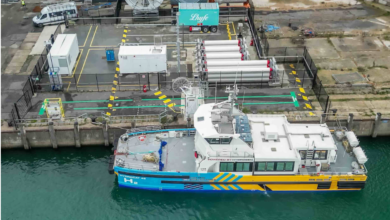Everfuel signups to supply hydrogen to upcoming hydrogen-powered ship
Currently, ships are powered by fossil fuel which is highly pollutant and account for 3% of global emission.

Everfuel A/S has signed a Memorandum of Understanding (MoU) with a German-Norwegian shipping company to supply hydrogen to a new zero-emission ship, H2 Bulletin reports.
Under the agreement, Everfuel will supply hydrogen to the undisclosed shipping company, covering the planning, installation and operation of scalable fuelling solutions.
The shipping company aims to establish long-term hydrogen supply and offtake contracts for its zero-emission shipping projects. It plans to start operation in early 2023 with an initial ship, which is expected to consume around 1,000 kg/day hydrogen.
The two parties are currently figuring out various aspects of the project, including technical and commercial as well as exploring potential sites for the fuelling sites. Everfuel plans to initially supply hydrogen from its HySynergy facility in Fredericia using a new in-house developed fuelling solution.
Jacob Krogsgaard, the CEO of Everfuel, said, “Switching to zero-emission solutions will make a significant difference. We look forward to this cooperation on pioneering green shipping fueled by hydrogen from Everfuel.”
Everfuel is leading the HySynergy project, which involves developing a 20 MW PtX facility in 2022, aiming for over 1 GW before 2030. The goal of the project is to establish large-scale production and storage of green hydrogen to reduce the carbon footprint within the existing Shell Fredericia refinery processes and establish a supply of green hydrogen as a zero-emission fuel for heavy-duty transportation. The partners in the project involved are the Shell Refinery, Aktive Energi Anlæg (AEA), Trefor Elnet, Energinet, TVIS and EWII.
The decarbonisation of the shipping industry initiative is taking traction, where the International Maritime Organisation (IMO) set a target to cut half of the shipping emissions by 2050 and carbon neutral by the end of the century. The European Maritime Safety Organisation (EMSA) set a goal to cut its region’s emissions by at least 40% until 2050, compared to 2005 levels.
